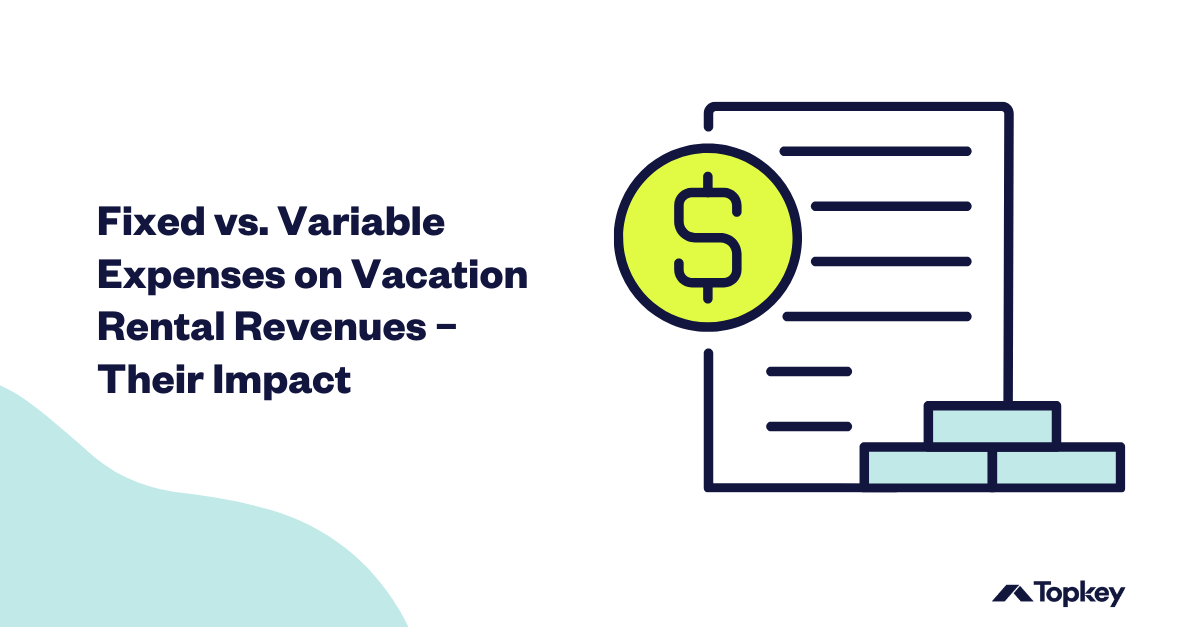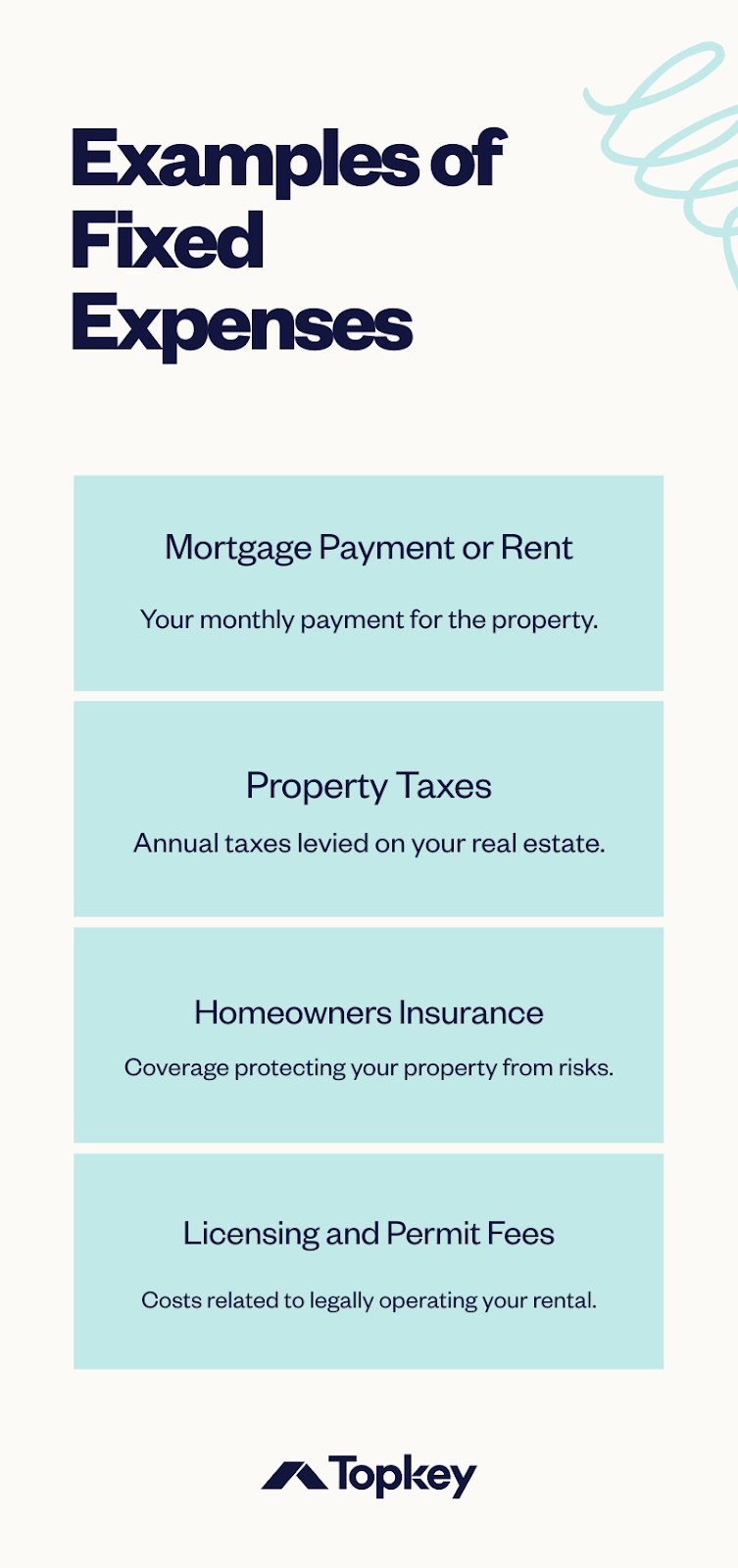
Running a successful vacation rental business isn’t just about location, decor, or glowing guest reviews. It’s also about mastering the financial engine behind your operation. For short-term rental owners and managers, understanding how different types of expenses impact revenue is key to improving profitability and sustaining long-term growth. In particular, knowing the difference between fixed and variable expenses—and how to manage them—can help you make smarter decisions in every season.
In this article, we’ll explore what fixed and variable expenses are, how each affects your bottom line, and how you can optimize them to improve your vacation rental performance.
What Are Fixed Expenses in Vacation Rentals?
Fixed expenses are the costs you must pay regardless of how many bookings you get. These don’t change with occupancy levels, which makes them predictable but potentially risky if your property is underbooked.
Typical fixed expenses in a vacation rental include your salaries, advertising, mortgage or rent,, homeowners insurance, licensing fees, and software subscriptions. For example, if you use property management tools like Topkey to automate bookkeeping or track expenses, the cost of that service remains generally the same month to month.
One advantage of fixed expenses is that they make budgeting easier. Since these costs remain consistent, it’s simpler to plan your finances over the course of a year. However, they also create pressure during slow seasons. If your calendar isn’t full, those fixed costs still need to be paid, potentially cutting into your margins or causing cash flow issues.

What Are Variable Expenses?
Variable expenses, on the other hand, are tied directly to occupancy. They fluctuate depending on how many guests stay in your property and how often it’s in use.
Examples include cleaning fees after each guest, laundry services, utilities, restocking supplies, and general maintenance. These costs increase with more bookings but may also decrease during off-seasons. While variable expenses are harder to predict, they offer flexibility: if your rental isn’t booked, many of these costs simply don’t occur.
That said, variable expenses can sometimes be surprising. For example, if a particularly high-maintenance guest causes damage or requires extra cleaning, your costs spike unexpectedly. That’s why many vacation rental owners set aside a maintenance reserve to buffer against such surprises.

The Revenue Impact of Fixed vs. Variable Expenses
To understand the impact of these expenses on revenue, let’s consider two hypothetical rental owners:
Owner A has high fixed expenses. They pay for premium property management services, a large mortgage, and expensive software. When bookings are strong, profits soar because variable expenses are minimal. But in the off-season, they struggle to cover their baseline costs.
Owner B runs a lean operation with minimal fixed expenses but higher variable costs. They hire cleaners and handymen per booking, use pay-as-you-go tools, and don’t have a mortgage. Their costs scale with occupancy, so while they’re more flexible, they also have less control over profit margins.
The key takeaway is that fixed expenses affect long-term cash flow and financial stability, while variable expenses influence short-term margins. To operate profitably, vacation rental owners must balance both types and understand how they interact with occupancy trends, seasonal fluctuations, and revenue goals.
Managing and Optimizing Your Expenses
The first step toward better financial health is accurate tracking. Many successful property managers use tools like Topkey to categorize and monitor all expenses in real time. This kind of visibility helps identify trends, flag problem areas, and improve forecasting accuracy.
Reducing unnecessary fixed costs is another smart move. Do you have a premium software subscription you’re underutilizing? Are there licensing or insurance policies that could be renegotiated? Regularly reviewing fixed expenses can yield big savings over time.
For variable expenses, focus on efficiency. Can you negotiate better rates with your cleaning service? Automate restocking through local suppliers? Some owners install smart thermostats to reduce utility bills or use occupancy sensors to manage energy use more effectively.
Another effective strategy is budgeting with occupancy in mind. During peak seasons, build a financial buffer by saving excess revenue. This cushion can help cover fixed costs during leaner months or be used for property improvements that enhance future profitability.
Conclusion: Find Your Balance, Grow Your Revenue
Understanding the difference between fixed and variable expenses is more than an accounting exercise—it’s a key to unlocking higher profitability in the vacation rental business. Fixed costs give you structure but can become burdensome without steady occupancy. Variable costs offer flexibility but need to be monitored closely to prevent erosion of profit margins.
With the right tools, like Topkey, and a proactive approach to expense management, you can create a leaner, more resilient rental operation. Start by auditing your current expenses, categorize them clearly, and explore opportunities to optimize. The result? Greater control over your revenue and a stronger foundation for long-term success.
See the Topkey difference.


